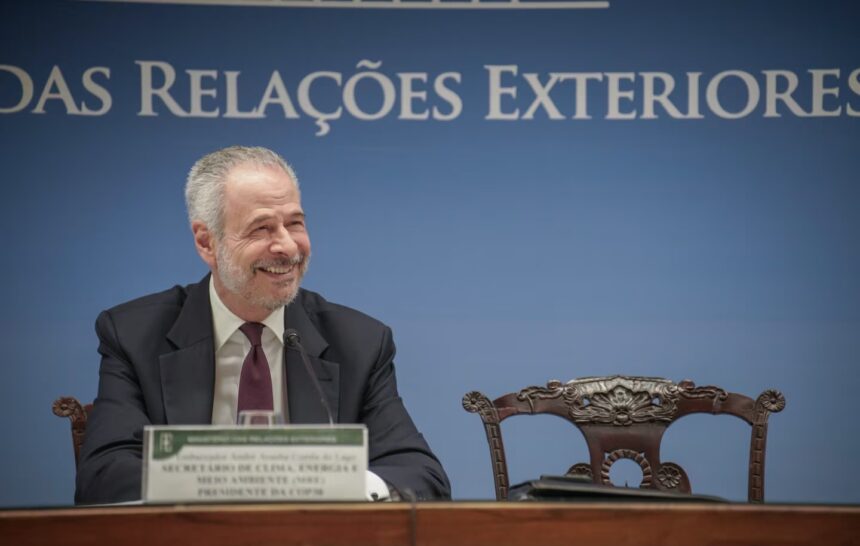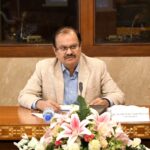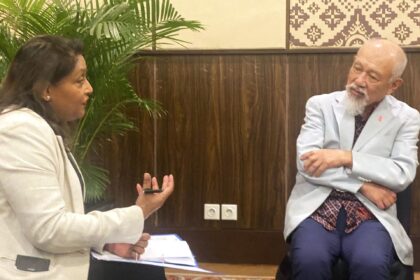**Brazil’s COP30 President Urges Global Action on Fossil Fuels, Says Era of Negotiation Is Over**
Brazil’s COP30 President, André Aranha Corrêa do Lago, has issued a strong call for world governments to shift from negotiation to concrete action on phasing out fossil fuels, emphasizing that new deals are no longer necessary. With COP30 set to take place in Belém, Brazil, Corrêa do Lago insists the priority must now be implementation of existing climate commitments, reflecting both the urgency of the climate crisis and the need for national governments to deliver on transition promises.
Speaking in an exclusive interview, Corrêa do Lago stressed that countries have already agreed—most recently at COP28 in Dubai—to move away from planet-warming fossil fuels. He asserted it is time to operationalize these commitments instead of returning to the negotiation table to reword previous agreements. “There’s no need to keep rewriting agreements we already have,” Corrêa do Lago said, underscoring that COP30 should focus on translating those pledges into real-world action.
While Brazil’s environment minister Marina Silva recently suggested that COP30 could result in a formal roadmap for a “planned and just transition to end fossil fuels,” Corrêa do Lago explained that implementation does not require renewed international consensus. He noted that a number of countries believe a formal decision is necessary to start work on a transition roadmap, but warned that insisting on further negotiations risks delaying much-needed progress. “We can’t keep the world waiting for negotiations to move forward,” he argued, adding that the urgency of climate change means immediate action is required—especially for developing nations already suffering climate impacts.
The COP30 President also addressed the major financial challenges confronting global climate action. He painted a sobering picture of the current state of climate finance, pointing out that wealthy nations have been slow to deliver on pledges—including the commitment for $300 billion in annual climate finance by 2035. Corrêa do Lago dismissed the idea that this sum will come entirely from public sources, saying, “It’s a huge simplification to think the $300 billion will come only from public money—especially when some wealthy nations are prioritizing defense over climate.” He highlighted ongoing work—together with COP29—to develop a comprehensive roadmap to mobilize the full $1.3 trillion needed annually by leveraging both public and private investment.
Corrêa do Lago also expressed concern over weak international cooperation and uncertain political will, alluding to the United States’ withdrawal from key climate funding commitments and the potential for further changes in priorities depending on the outcome of upcoming US elections. He confirmed that Brazil is still awaiting official word regarding US participation at COP30.
Despite questions over infrastructure and accommodation, Brazil remains resolute in its commitment to hold COP30 in the Amazonian city of Belém. Corrêa do Lago reiterated President Lula’s vision of using the historic rainforest setting both to highlight its critical ecological importance and the vulnerabilities it faces. With 50,000 delegates expected to attend, local officials are developing a digital housing platform and repurposing cruise ships and private apartments to ensure adequate accommodations. “The situation is much better than people imagine,” he said, expressing confidence that Belém will be able to successfully host the summit and spotlight the Amazon’s central role in climate solutions.
As COP30 approaches, Brazil is determined to shift the global climate discussion from promises to practice. For Corrêa do Lago, the decisive question is no longer whether the world will transition away from fossil fuels, but how quickly and equitably that transition can be achieved.











